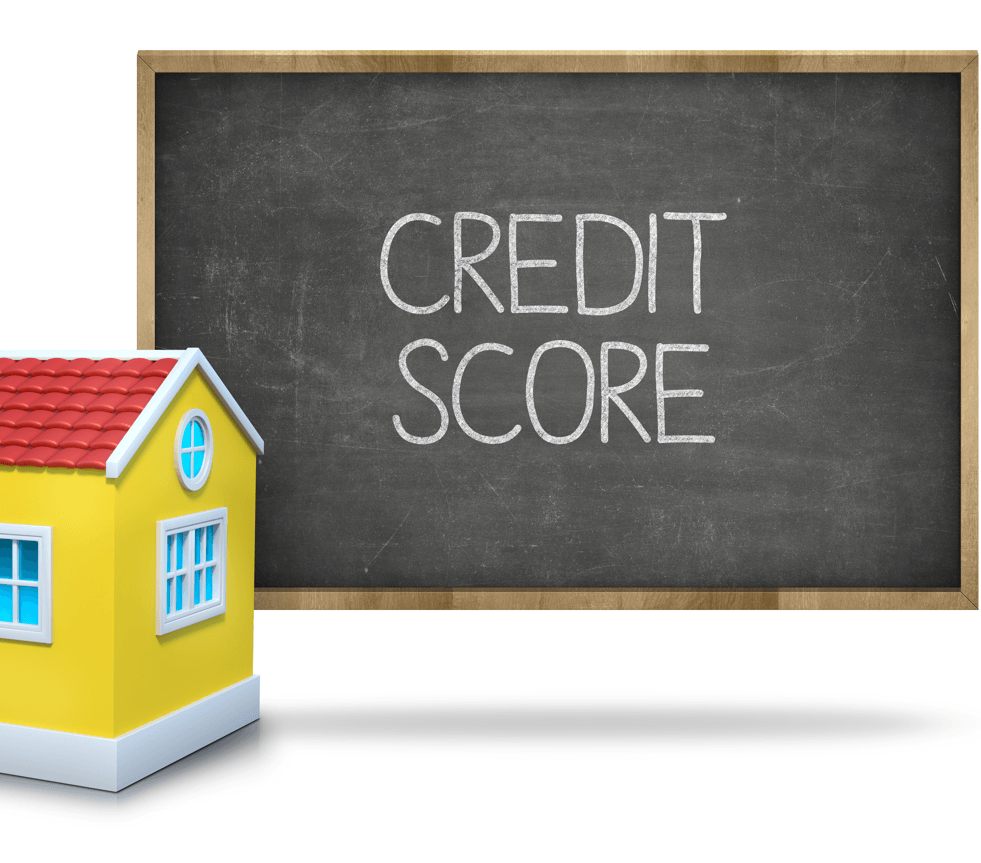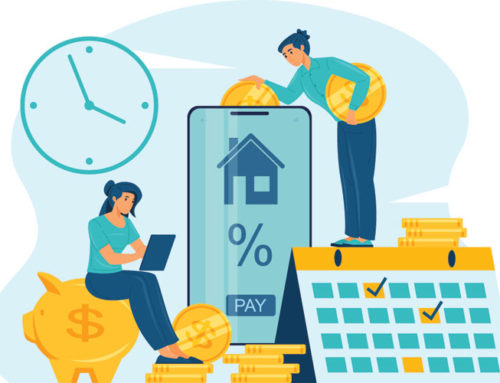 People often think the first step in home buying is looking for ways to come up with a down payment. While this is partly true, there’s one thing homeowners often overlook when considering a new home purchase: their credit score. Here’s what you need to know about your credit score when it comes to getting a mortgage.
People often think the first step in home buying is looking for ways to come up with a down payment. While this is partly true, there’s one thing homeowners often overlook when considering a new home purchase: their credit score. Here’s what you need to know about your credit score when it comes to getting a mortgage.
Credit Scores in a Nutshell
In short, your credit score is a reflection of your credit history. Anytime you’ve applied for a loan or signed up for a credit card, you’ve impacted your credit. Lenders will check your history in order to determine how accountable you’ve been to paying your previous loans and will lend accordingly. Cards and loans aside, here are a few other things that may be affecting your credit:
- Rent Payments
- Cell Phone and Utility Bills
- Bank Overdrafts
- Car Loans and Insurance
- Student Loans
- Unpaid Gym or Club Memberships
- Child Support
- Debt Consolidation
Your Past Will Follow You
This is where credit can prove to be helpful or a hindrance. If you’ve always paid your bills on time and managed your money well, you’ve set yourself up to get even further credit in the future. However, if you were reckless with your first credit card by wracking it up and missing payments, this may come back to bite you – even if it was years ago.
 A High Number is Good…
A High Number is Good…
Credit scores are boiled down to three digit numbers ranging between 300 (not good) and 900 (unicorn). Credit scores that land at 750 and above are considered ideal, whereas anything below 600 indicates to lenders you’re a potential risk.
It Will Affect Your Interest Rates
As we mentioned above, your score will affect your ability to obtain further credit. Just like any other loan, lenders will take your payment history and current debt into account when determining your mortgage rate.
If you’re considered higher-risk you’re less likely to receive loans from major institutions and may have to seek a private lender as a result. While you may still get a mortgage, you could end up paying thousands of dollars more in interest.
How Can You Check?
When it comes to checking your own score, people are often concerned it will negatively impact their credit. It actually all boils down to what are called ‘hard’ and ‘soft’ checks.
A hard check is when your credit report is pulled for the purpose of receiving a loan such as a car loan or mortgage (this includes pre-approvals). These are the types of inquiries that affect your credit although it’s often minimal – around five points or so. Even if this doesn’t sound like much, keep in mind when it comes to inquiries there’s no guaranteed point value and multiple instances will add up.
For all the reasons above, you may want to consider requesting a copy of your credit report from TransUnion or Equifax Canada. Known as a soft check or ‘pull’, you can ask for a free copy to be delivered to you by mail. Although it may be a couple of weeks before you receive it, this is a great penalty-free way to get your credit bearings.
Don’t Panic!
If your credit report is less than magical, don’t beat yourself up about it. Even the finest financial gurus are prone to missing a bill payment once and a while. So, if you’re finding yourself on the lowest rung of the credit ladder, here are a few tips to help your score climb:
The Obvious
- Pay more and pay on time – When it comes to loans and credit cards especially, pay on time and pay more than the minimum. Minimum payments generally only account for the interest and, unless you put down more, you’ll never be able to tackle your balance.
- Don’t apply for any more! – Even if you do have decent credit, applying for any type of new loan (such as purchasing a car or furniture) will have an immediate impact on your loan eligibility.
The Not-so-Obvious
- Hunker down – Your debt repayment strategy will be much more effective if you concentrate on one loan. For example, if you have a credit card and a line of credit, focus on one while making smaller (above minimum) payments on the other. This will help you pay down credit faster and more effectively.
- Hold on to your oldest card – While we fully encourage destroying your credit cards after they’ve been paid off (scissors, blowtorch, chainsaw, whatever you prefer) resist the temptation when it comes to your oldest card. Older cards mean more established credit and history for lenders to track.
In summary, be sure to have a good handle on your credit before you consider applying for a mortgage. While it’s always a good idea to start saving for your down payment, be sure to tackle existing debts first. Not only will this put you in a better position for a mortgage approval but it will ensure much friendlier mortgage payments down the road.
{{cta(‘0f90dd88-6d24-4d8b-a9a2-590bc8ae5dfe’,’justifycenter’)}}






